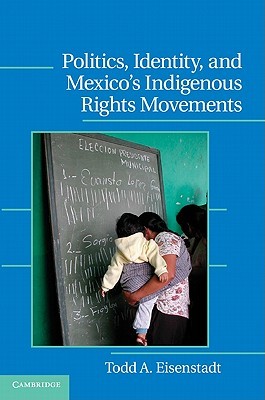
- We will send in 10–14 business days.
- Author: Todd A Eisenstadt
- Publisher: Cambridge University Press
- ISBN-10: 110700120X
- ISBN-13: 9781107001206
- Format: 15.8 x 23.1 x 2 cm, hardcover
- Language: English
- SAVE -10% with code: EXTRA
Politics, Identity, and Mexico's Indigenous Rights Movements (e-book) (used book) | bookbook.eu
Reviews
Description
Drawing on an original survey of more than 5,000 respondents, this book argues that, contrary to claims by the 1994 Zapatista insurgency, indigenous and non-indigenous respondents in southern Mexico have been united by socioeconomic conditions and land tenure institutions as well as by ethnic identity. It concludes that - contrary to many analyses of Chiapas's 1994 indigenous rebellion - external influences can trump ideology in framing social movements. Rural Chiapas's prevalent communitarian attitudes resulted partly from external land tenure institutions, rather than from indigenous identities alone. The book further points to recent indigenous rights movements in neighboring Oaxaca, Mexico, as examples of bottom-up multicultural institutions that might be emulated in Mexico and elsewhere in Latin America.
EXTRA 10 % discount with code: EXTRA
The promotion ends in 19d.08:27:19
The discount code is valid when purchasing from 10 €. Discounts do not stack.
- Author: Todd A Eisenstadt
- Publisher: Cambridge University Press
- ISBN-10: 110700120X
- ISBN-13: 9781107001206
- Format: 15.8 x 23.1 x 2 cm, hardcover
- Language: English English
Drawing on an original survey of more than 5,000 respondents, this book argues that, contrary to claims by the 1994 Zapatista insurgency, indigenous and non-indigenous respondents in southern Mexico have been united by socioeconomic conditions and land tenure institutions as well as by ethnic identity. It concludes that - contrary to many analyses of Chiapas's 1994 indigenous rebellion - external influences can trump ideology in framing social movements. Rural Chiapas's prevalent communitarian attitudes resulted partly from external land tenure institutions, rather than from indigenous identities alone. The book further points to recent indigenous rights movements in neighboring Oaxaca, Mexico, as examples of bottom-up multicultural institutions that might be emulated in Mexico and elsewhere in Latin America.


Reviews